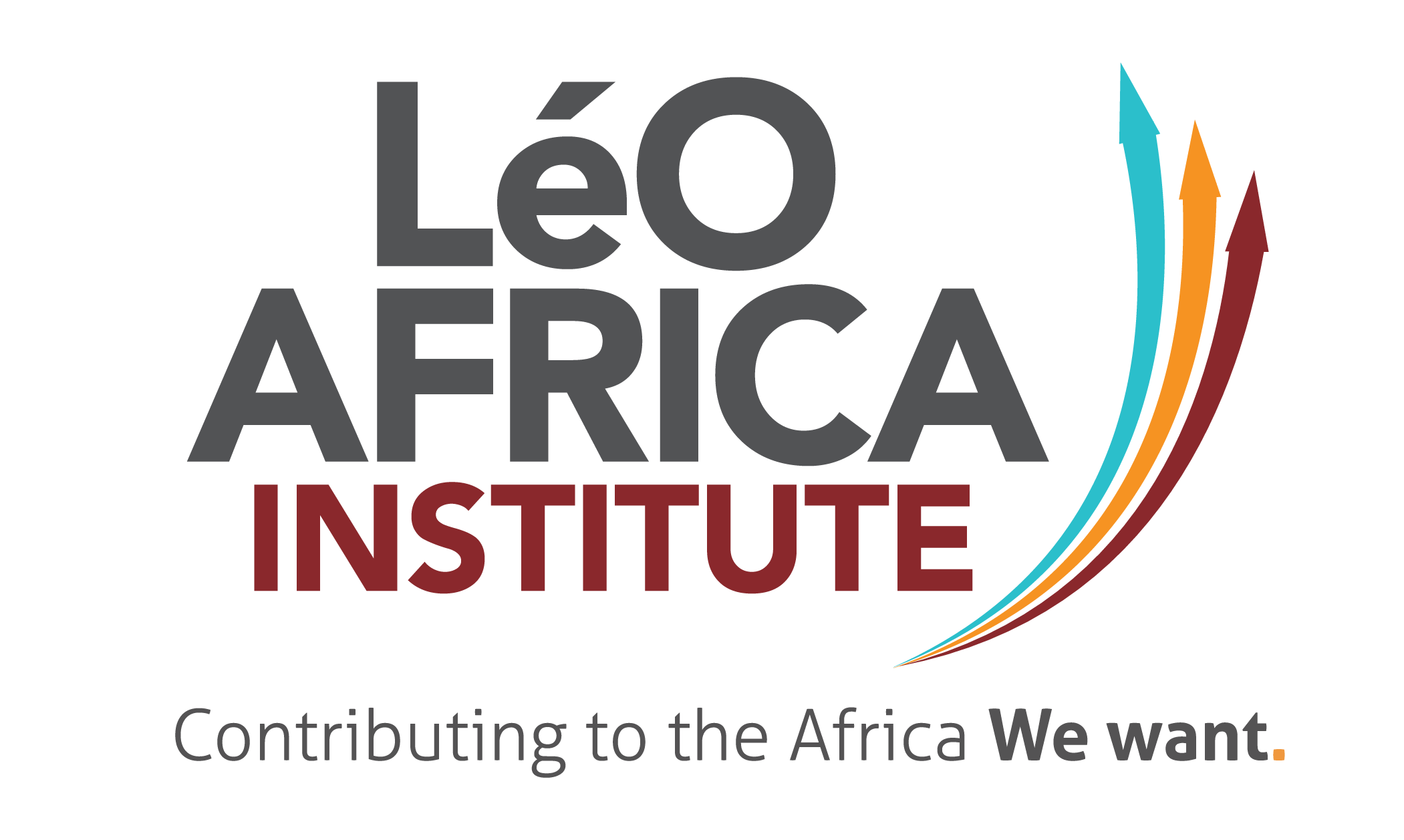Following the success of the inaugural heritage seminar in Western Uganda last year, the LéO Africa Institute took its thought-provoking seminar series to Eastern Uganda. Jinja–the heart of the Busoga Kingdom–was the setting for a three-day seminar held under the theme, “Journeys Back Home: Reflections on Culture, Heritage & Leadership in Today’s World”.
The seminar weekend was filled with rich cultural exploration and deep conversations about the region’s heritage and its role in modern development.
Embracing Busoga’s Cultural Heritage
During the seminar, members of the LéO Africa Network of the LéO Africa Institute immersed themselves in the vibrant cultural heritage of Eastern Uganda. This region, known for its historical significance as the source of the Nile and its burgeoning status as a manufacturing hub, holds tremendous potential for Uganda’s economic transformation. The seminar posed a critical question: “Can heritage co-exist with development?”
Insights from a Local Media Pioneer
The seminar started with a conversation with Isaac Imaka, a renowned journalist and communications professional serving the Busoga Kingdom’s Gabula Foundation. As the Founder and CEO of Busoga Today, Imaka shared his inspiring journey from working at one of Uganda’s leading media houses, Daily Monitor, to establishing a local newspaper in Busoga. His transition underscored the importance of local journalism in community empowerment.
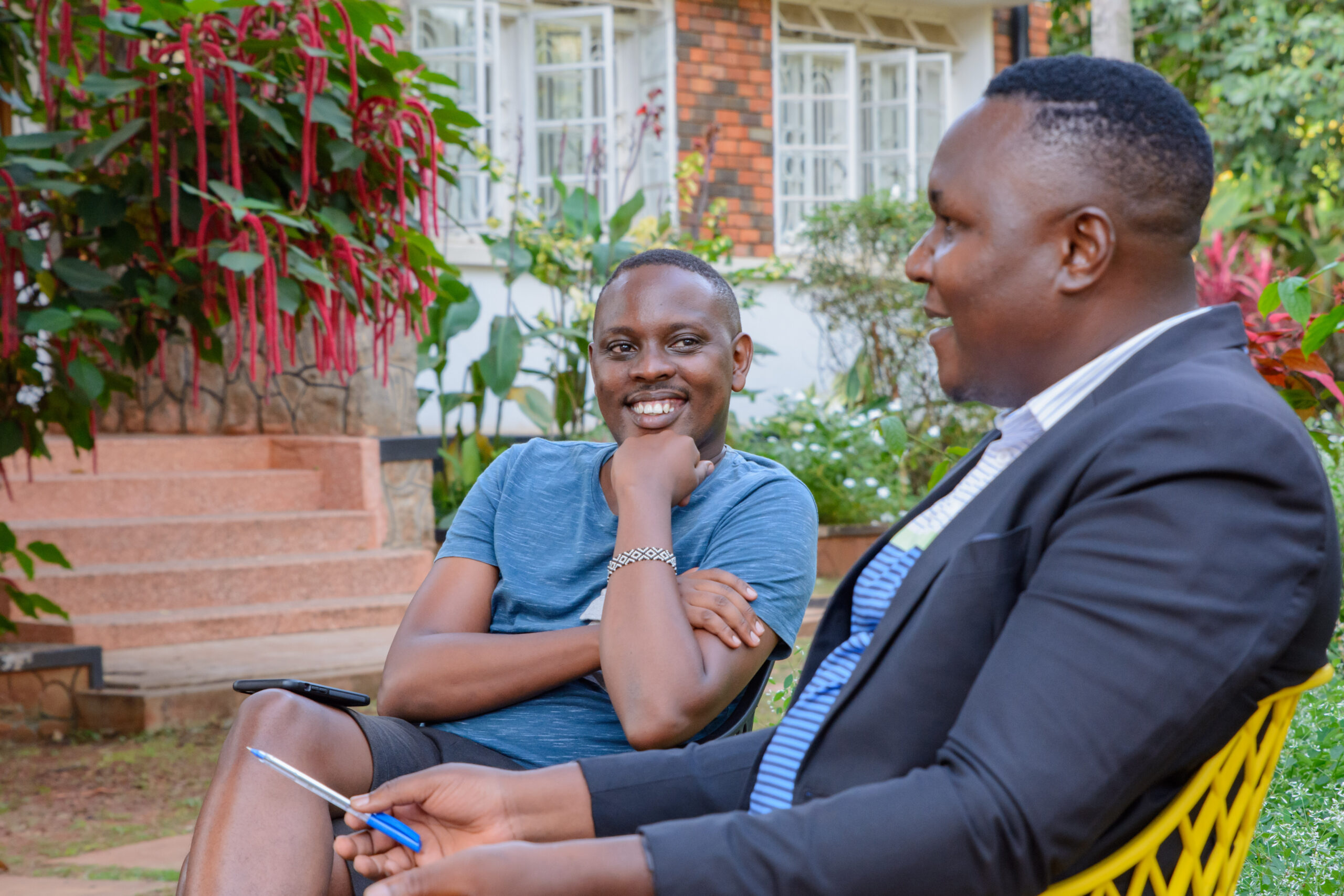
Moderated by Karane Tuhirirwe, a Huduma Fellow from the Class of 2021, the session delved into the challenges and triumphs of running a local print newspaper in the digital age. When asked why he chose to focus on print media despite the competition from other forms of media, Imaka passionately replied, “Print is heritage, print is pride, print is history. Print was the first medium.” He emphasized that Busoga Today goes beyond merely reporting news; it probes deeper into causes, offers solutions, and seeks accountability. With a weekly circulation of 4,000 to 5,000 copies, and peaking at 10,000 copies during the Busoga Royal wedding, Busoga Today is a not-for-profit community initiative dedicated to making a difference.
About the role of Local Journalism, Isaac Imaka’s insights into the role of local journalism were particularly impactful. He illustrated how Busoga Today functions not just as a news outlet, but as a catalyst for community dialogue and action. By focusing on in-depth reporting that probes causes, offers solutions, and seeks accountability, the newspaper fosters a well-informed and engaged community. This approach is vital in a region where development is rapidly changing the social and economic landscape.
Imaka’s experience highlights the challenges and opportunities of sustaining a print publication in an era dominated by digital media. His dedication to print, described as heritage, pride, and history, underscores the enduring value of traditional media in preserving cultural narratives and fostering community pride. The paper is in both English and Lusoga and the Lusoga part is the Heritage preservation and promotion which focuses on Basoga Culture, tradition and norms.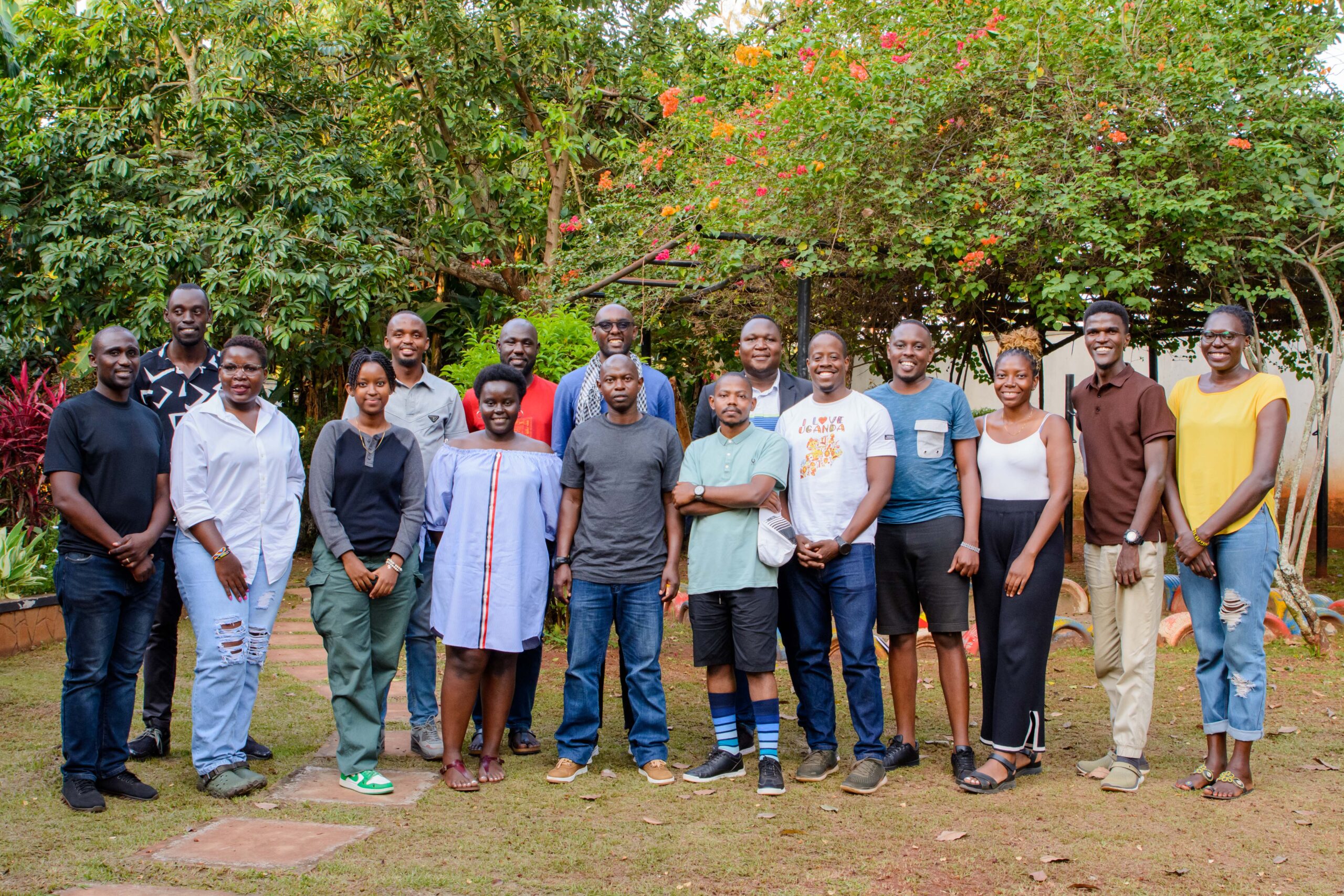
Engaging Activities and Reflective Sessions
The seminar also featured an array of engaging activities, including white water rafting and visits to the source of the Nile and the Uganda Railway Museum in Jinja. These excursions offered members of the LéO Africa Network a hands-on experience of the region’s natural beauty and historical landmarks, enriching their understanding of Eastern Uganda’s heritage.
A reflective session on the reading “Call Me by My True Names” by Thich Nhat Hanh provided a platform for deep introspection and discussion. Hanh’s ideas on compassion and addressing behavioral challenges resonated with the participants. One of the members of the LéO Africa Network, Joanita Babirye, who leads the Girls for Climate Action initiative and serves as a minister in the Busoga Kingdom, was inspired to initiate a cleaning campaign drive for the Nile, showcasing the seminar’s impact on fostering actionable change.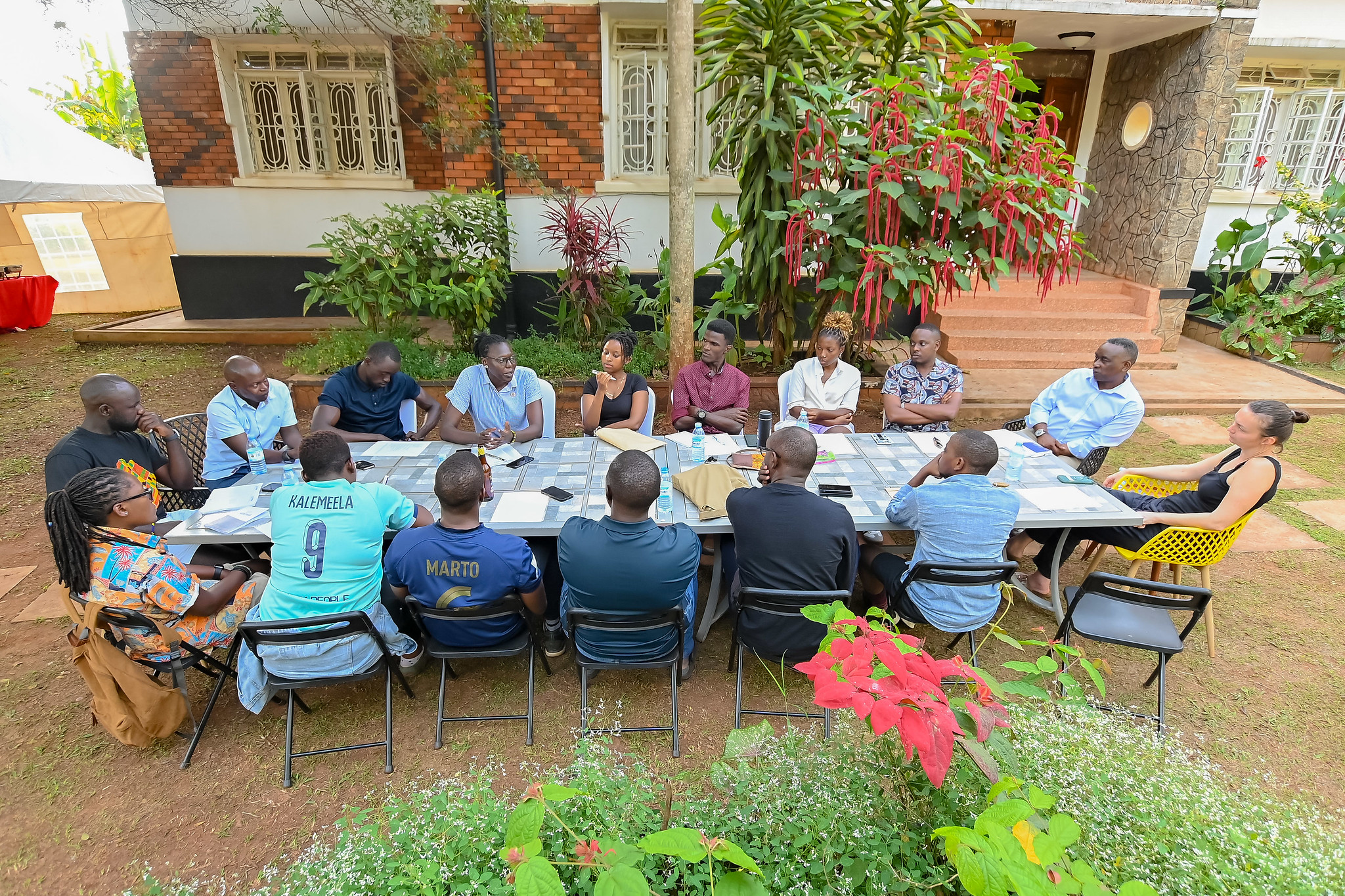
The reflective session was punctuated by insightful quotes from the members of the LéO Africa Network and session leads. “It takes two to find a solution,” remarked Anna Reismann, emphasizing the collaborative nature of problem-solving. Awel Uwihanganye posed the question, “What are the true names to call?” urging participants to consider the deeper meanings and identities behind names. Reismann also noted, “Compassion should be born out of experience,” highlighting the importance of empathy rooted in personal understanding. These reflections, alongside discussions on the necessity of having hard conversations with each other, underscored the seminar’s emphasis on compassion, dialogue, and collaborative problem-solving.
Bridging Heritage and Modern Development
The seminar addressed the pressing issue of balancing heritage preservation with the demands of modern development. Jinja, as a growing manufacturing hub and a site of immense historical significance, serves as a perfect example of this delicate balance. The members of the LéO Africa Network discussed various strategies for integrating cultural heritage into development plans without compromising the integrity and authenticity of the region’s rich traditions.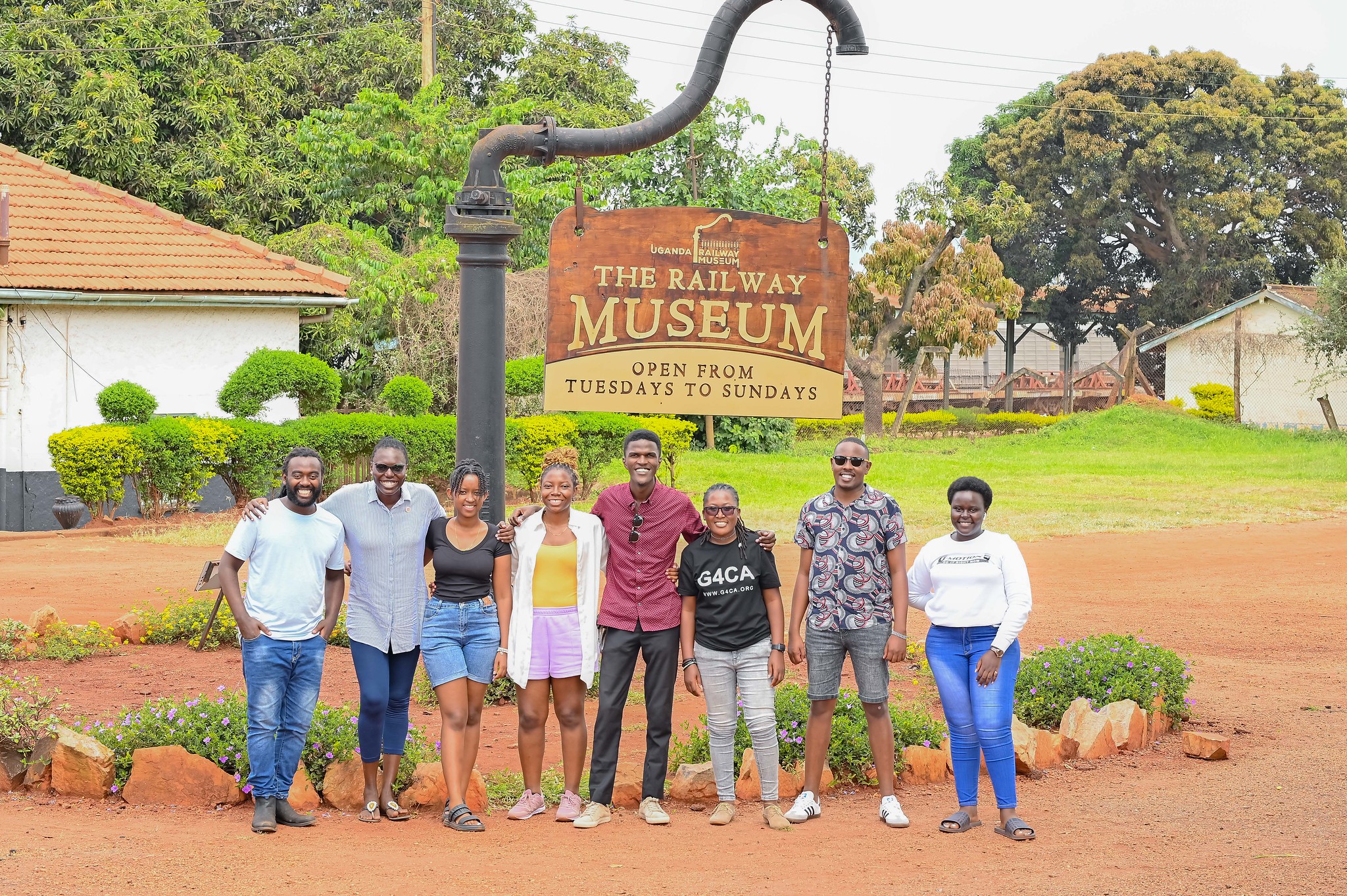
Environmental Stewardship and Cultural Heritage
The seminar also emphasized the importance of environmental stewardship in preserving cultural heritage. The excursion to the source of the Nile and the subsequent cleaning campaign initiated by Joanita Babirye exemplified this connection. By actively engaging in environmental conservation, the members of the LéO Africa Network demonstrated a commitment to protecting the natural heritage that is integral to the cultural identity of the region.
Reflective Dialogue and Check out session
The reflective session on Thich Nhat Hanh’s reading fostered deep dialogues about compassion, identity, and community responsibility. The members of the LéO Africa Network’ discussions on compassion being born out of experience and the importance of hard conversations highlighted the seminar’s focus on personal growth and collective action. These dialogues are crucial for developing leaders who are empathetic, thoughtful, and committed to making a positive impact in their communities.
The heritage seminar in Eastern Uganda was a resounding success, bringing together a diverse group of individuals to explore the intersection of culture, heritage, and development. By engaging with the rich cultural legacy of the Busoga Kingdom and addressing contemporary challenges, the seminar highlighted the potential for heritage to coexist with and even enhance development efforts. As the LéO Africa Institute continues its journey, it remains committed to fostering leadership and cultural understanding across Uganda and beyond.
The insights gained from this seminar will undoubtedly contribute to ongoing discussions about the role of heritage in modern society. By valuing and integrating cultural heritage into development strategies, communities can achieve sustainable growth that respects and preserves their unique identities. The LéO Africa Institute’s dedication to these principles ensures that the legacy of Uganda’s rich cultural heritage will continue to inspire and guide future generations.
See more photos from the seminar here.
